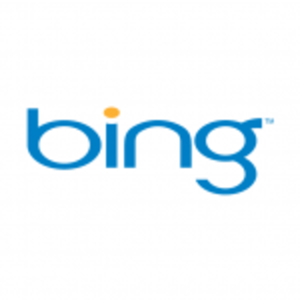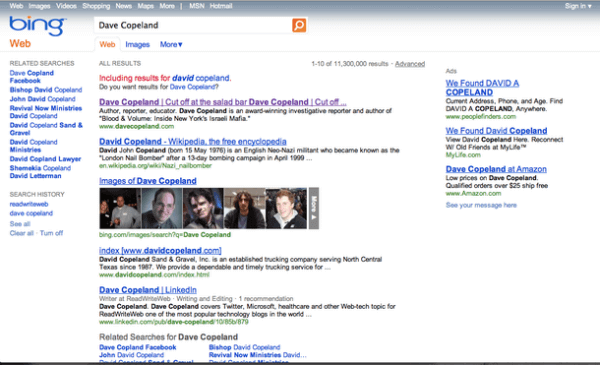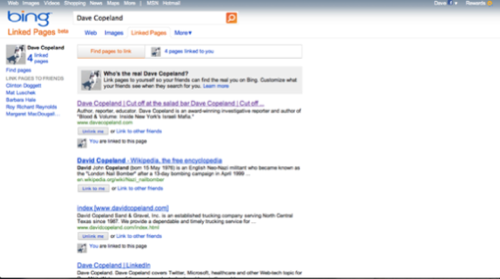Ever Google someone before a blind date or deciding to hire them? Of course you have.

But going forward, if you choose to Bing them instead of Google them, you may end up getting results they have manually approved. Microsoft has launched Linked Pages for its Bing search engine. The feature, which is currently only available to users in the U.S., essentially lets you control what people see when they search you.
The premise is that you’ll be able to more easily link content that is about you to Bing search results. For example, when I searched “Dave Copeland” on Bing this morning, I got this screen:

The first site is indeed my personal Web site. But the second site is the Wikipedia entry on David John Copeland, an “introvert who was fascinated by Hitler” and bombed gay nightclubs in London in 1999, subsequently becoming a martyr for the white supremacy movement. That is most definitely not me, and not someone I want chance people mistaking for me for, not even for a split second.
By allowing Bing to access my Facebook account through its Linked Pages site, I can pick and choose what my friends see about me. From there I can link results to me or I can also link results to Facebook friends. The results that are not related to me, but afterwards Bing starts to show which pages I have essentially verified:

The Bing tutorial video has more info on how to set it up. Presumably, the edited search results are only available to your connections through Facebook and MSN.
I have mixed feelings about this new service. For starters, I always felt that the point of a good search engine was to help me find what I was looking for the first go around, and to insure that people searching for me also found what they were looking for. It’s kind of hard to not feel like this is simply a ploy by Microsoft to get me to effectively sign into Bing. Who, after all, doesn’t want to clean up their public perception on the Web? But if people can self-edit, are we losing a certain degree of objectivity in search?

















